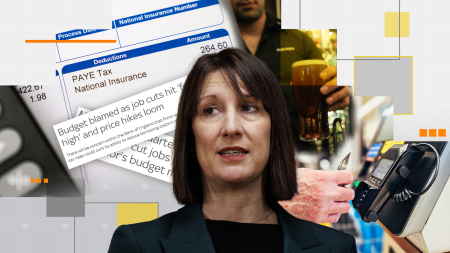Britain’s Regulatory Overhaul: The Future of the Payment Systems Regulator
Context and Background
The British government is reportedly considering a significant overhaul of its regulatory framework, with the Payment Systems Regulator (PSR) potentially facing abolition. According to Sky News, ministers and officials are evaluating whether to dismantle the PSR and integrate its functions into the Financial Conduct Authority (FCA). This decision is part of a broader effort to streamline regulatory bodies, reduce bureaucratic hurdles, and foster economic growth. The move aligns with Prime Minister Sir Keir Starmer and Chancellor Rachel Reeves’ vision of cutting red tape and revitalizing the economy. A decision on the PSR’s fate is expected within weeks, although sources indicate that the government is actively leaning toward scrapping the body. If confirmed, this change would mark a significant shift in how financial and payment systems are regulated in the UK.
The Bigger Picture: A Regulatory Shake-Up
This potential abolition of the PSR is not an isolated event but part of a larger crackdown on economic regulators. In recent months, there have been notable changes in key regulatory roles. For instance, Marcus Bokkerink, the former chairman of the Competition and Markets Authority (CMA), was removed by ministers due to concerns that the CMA was not adequately prioritizing UK competitiveness. He was replaced by Doug Gurr, a former Amazon executive, signaling a shift toward a more business-friendly approach. Similarly, both the chair and chief executive of the Financial Ombudsman Service have announced their plans to step down, further indicating a wave of change across regulatory bodies.
The government’s focus on regulatory reform was emphasized when, on Christmas Eve, the Prime Minister and Chancellor wrote to approximately 15 major regulators, including Ofcom, Ofgem, and Ofwat, urging them to propose ways to reduce bureaucracy and promote economic growth. Since then, Chancellor Rachel Reeves has held several roundtable discussions with these regulators, underscoring the government’s commitment to creating a more growth-oriented regulatory environment. This audit of roughly 130 regulators across the economy aims to assess whether they are sufficiently focused on driving growth—a clear indication that the government is intent on reshaping the regulatory landscape.
The PSR’s Role and Criticisms
The Payment Systems Regulator, established under the Financial Services (Banking Reform) Act 2013 and operational since 2015, is directly accountable to Parliament. It employs around 160 people and plays a critical role in overseeing the UK’s payment systems. However, the PSR has faced criticism from both the industry and politicians regarding its regulatory approach, particularly in areas such as fraud reimbursement by financial services firms. Despite its important function, especially as technology continues to transform the global payments industry, questions have been raised about its performance and whether it is necessary as a standalone body.
A source close to the matter highlighted that "no other major economy has a standalone payments regulator like this, and it is hard to make the case for it continuing to exist." This sentiment reflects the government’s growing belief that merging the PSR with the FCA could be a logical step, as it would streamline regulatory oversight and eliminate potential redundancies. The FCA already plays a significant role in regulating financial services, and integrating the PSR’s responsibilities could enhance efficiency and reduce fragmentation in the regulatory framework.
Industry and Consumer Implications
The potential merger of the PSR with the FCA raises important questions about its implications for both the industry and consumers. The payments sector is a critical component of the UK’s financial infrastructure, particularly as technological advancements like contactless payments, digital wallets, and cryptocurrencies continue to reshape the landscape. The PSR’s role in ensuring the stability, security, and competitiveness of payment systems is vital, but its effectiveness has been called into question. Critics argue that the regulator has not done enough to address issues such as fraud reimbursement, leaving consumers and businesses vulnerable.
On the other hand, proponents of the merger argue that combining the PSR with the FCA could lead to a more cohesive and effective regulatory approach. The FCA already has extensive experience in overseeing financial services, and integrating payment systems regulation could allow for better coordination and resource allocation. However, there are concerns that merging the two bodies could dilute the focus on payment systems, potentially leaving gaps in oversight as the industry evolves.
The Broader Debate on Regulatory Efficiency
This move is part of a broader debate about the number and role of regulators in the UK. Business Secretary Jonathan Reynolds has questioned whether the country has "the right number of regulators," suggesting that the current framework may be overly complex and burdensome. While Reynolds did not specify which regulators could be abolished, the Financial Times has reported that the Chancellor is planning an audit of approximately 130 regulators to assess their focus on growth. This audit could lead to further consolidation or abolition of regulatory bodies deemed inefficient or redundant.
The government’s push for regulatory reform is driven by the belief that excessive regulation can stifle innovation and economic growth. By streamlining regulatory bodies and eliminating redundancies, the government aims to create a more favorable business environment. However, this approach also raises concerns about the potential erosion of regulatory safeguards and the impact on consumer protection. The balance between reducing bureaucracy and maintaining effective oversight will be crucial as the government navigates this complex regulatory landscape.
Conclusion: The Road Ahead
The potential abolition of the PSR and its merger with the FCA represents a significant shift in the UK’s regulatory strategy. While the move aligns with the government’s goals of cutting red tape and stimulating economic growth, it also raises important questions about the future of payment systems regulation and its impact on consumers and businesses. As the government moves forward with its regulatory audit and potential reforms, it will be essential to ensure that any changes enhance efficiency without compromising the stability and security of the financial system.
The coming weeks will be critical as ministers decide the fate of the PSR. If the decision is made to abolish the regulator and fold it into the FCA, it will mark the latest step in a broader effort to reshape the UK’s regulatory framework. While the government’s focus on growth and competitiveness is clear, the long-term consequences of this move will depend on how carefully the reforms are designed and implemented. The outcome will be closely watched by industry stakeholders, consumers, and Parliament as the UK continues to navigate the challenges of regulating a rapidly evolving financial landscape.















